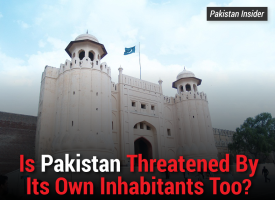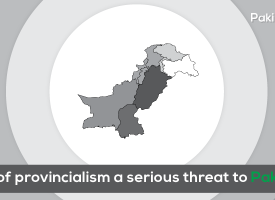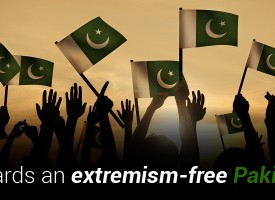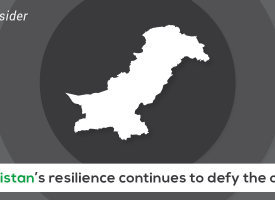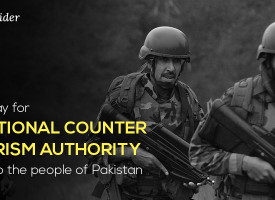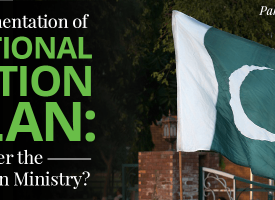Tag "national security"
Since its inception on August 14, 1947, Pakistan has continued facing a multitude of threats, both internal and external. Exhaustive efforts and deliberations have been made by concerned citizens to bring to fore foreign conspiracies which are aimed at maligning, destabilizing and ultimately destroying Pakistan. We have heard names of several countries in the region and beyond, their notorious intelligence agencies and armed forces trying to cause sabotage, mayhem and
On August 16, 2015, Pakistan lost one of its finest sons of the soil. Punjab Home Minister Colonel (retd) Shuja Khanzada Shaheed was an epitome of courage, determination, perseverance, operational vision and bravery. A third generation scion of a family with a legacy of serving in the army, he belonged to the Shadi Khan village of Attock. It was this very location where he was targeted by a suicide bomber
Balochistan is the largest province of Pakistan and ironically one with the least inhabitants. With a combined area of approximately 347,000 square kilometres, it is home to deserts, coastal belts, plateaus, mountains and oases littered across the vast expanse of mud, sand and hot air. The tribes which live here have been part of this land for thousands of years, wandering here and there as nomads. There are hundreds of
Colonel Kirit K. Nair is an in-service (serving) officer in the Indian Army. He was commissioned to 1 Sikh Light Infantry in March 1992. He has served extensively in Counter Insurgency (COIN) operations in occupied Jammu & Kashmir and Assam. He is currently on Study Leave for a post graduate degree program. In early 2015, Nair published a paper for Indian Army’s Centre for Land Warfare Studies (CLAWS) titled ‘India’s
Time and again, the Indian establishment creates a stir in the media by pressing Pakistan on the extradition of Zakiur Rehman Lakhvi, Hafiz Saeed and other members of Jamaat-ud-Daawa (JuD) who it believes are responsible for the tragic 26/11 Mumbai attacks. Without an iota of tangible evidence to support its claim, India further alleges that Pakistan’s premier spy agency, Inter-Services Intelligence (ISI) provided finance and logistical support to JuD members.
Addressing the Quetta Municipality on June 15, 1948, Quaid-e-Azam Muhammad Ali Jinnah made the following remarks: “While, however, one must love one’s town and work for its welfare–indeed because of it–one must love better one’s country and work more devotedly for it. Local attachments have their value but what is the value and strength of a “part” except within the “whole”. Yet this is a truth people so easily seem
Extremism is defined in the Merriam-Webster dictionary as, “belief in and support for ideas that are very far from what most people consider correct or reasonable”. Though religious extremism is singled out in today’s media reports, Pakistanis face several forms of it day in and day out. In the following paragraphs, we will briefly study the three prominent categories of extremism in Pakistan along with relevant examples to give a
Merriam Webster dictionary defines the word “resilience” as “the ability to become strong, healthy, or successful again after something bad happens” or “the ability of something to return to its original shape after it has been pulled, stretched, pressed, bent, etc”. The latter definition specifically concerns objects, but from whatever Pakistan has undergone since its independence, it wouldn’t be wrong to say the state was also “stretched” i.e. over-stretched in
According to statistics updated on June 14, 2015 by the South Asia Terrorism Portal (SATA), almost 58,055 Pakistanis (civilians and military personnel) have lost their lives to terrorism since 2003. This means that around 4,838 people were killed per year on an average. These figures reflect the next-to-none assurance of human security in a country that has played the role of a frontline state in the so-called War on Terrorism.
On 24 December 2014, Prime Minister Nawaz Sharif in a televised address to the country announced a ‘National Action Plan’ (NAP) to viciously counter the forces of terrorism and extremism. A few weeks later, NAP appeared in the form of a constitutional amendment, empowering the courts to prosecute convicted militants and their financers (challenged recently by a group of mafia lawyers). What is NAP? It is a consolidated 20-point national

